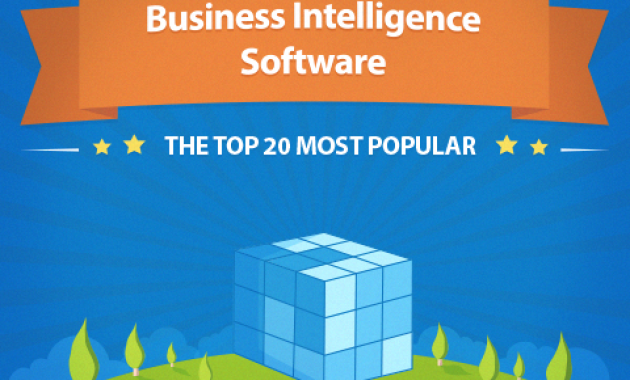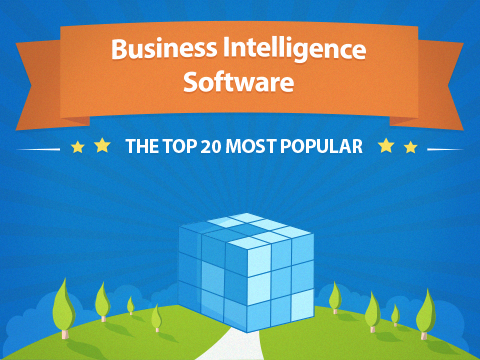
Business Intelligence Software That Gets You Results: A Comprehensive Guide
In today’s data-driven world, businesses are drowning in information. The challenge isn’t just collecting data; it’s understanding it. This is where business intelligence (BI) software steps in. This guide explores how business intelligence software can transform raw data into actionable insights, driving better decisions and ultimately, delivering tangible results. We will look at how to choose the right business intelligence software for your business.
The power of business intelligence software lies in its ability to analyze vast amounts of data, identify trends, and provide a clear picture of business performance. This allows organizations to make data-backed decisions, optimize operations, and gain a competitive edge. The right business intelligence software can mean the difference between thriving and merely surviving in the current business climate.
Understanding the Fundamentals of Business Intelligence
At its core, business intelligence involves the processes and technologies used to gather, store, analyze, and provide access to data to help business users make better decisions. This encompasses a range of tools and methodologies, all aimed at transforming raw data into meaningful information. Think of it as the process of turning noise into signal.
Key components of a robust business intelligence strategy include:
- Data Warehousing: Storing data from various sources in a centralized repository.
- Data Mining: Discovering patterns and insights within large datasets.
- Reporting and Analysis: Creating dashboards, reports, and visualizations to communicate findings.
- Online Analytical Processing (OLAP): Analyzing multidimensional data for deeper insights.
Key Features to Look for in Business Intelligence Software
Choosing the right business intelligence software is crucial. It depends on your specific needs. Several features separate effective software from the rest. Consider these key capabilities when evaluating your options:
Data Integration
The ability to connect to various data sources is paramount. The best business intelligence software seamlessly integrates data from multiple sources, including databases, cloud services, and spreadsheets. This ensures a holistic view of your business.
Data Visualization
Visualizations transform complex data into easy-to-understand formats. Look for software that offers a wide array of charts, graphs, and dashboards to effectively communicate insights. This allows for faster understanding.
Reporting and Dashboards
Customizable reports and dashboards provide at-a-glance views of key performance indicators (KPIs). This allows users to monitor progress and identify areas needing attention. The ability to create and share reports is very important.
Advanced Analytics
Modern business intelligence software often includes advanced analytics capabilities. These include predictive modeling, statistical analysis, and machine learning. These tools can help forecast future trends and uncover hidden opportunities. These tools allow for a deeper understanding of the data.
User-Friendliness and Accessibility
The software should be easy to use, even for non-technical users. A user-friendly interface ensures that everyone in the organization can access and understand the data. Accessibility is also crucial for collaboration.
Scalability
As your business grows, your data needs will also increase. The business intelligence software should be scalable to accommodate increasing data volumes and user demands. This will ensure continued value.
Benefits of Implementing Business Intelligence Software
The advantages of implementing business intelligence software are numerous and far-reaching. It can transform how your company makes decisions. The benefits extend across various departments and functions.
Improved Decision-Making
Data-driven insights empower better decisions. Business intelligence software provides the information needed to make informed choices. It reduces reliance on guesswork and intuition.
Increased Efficiency
Automated reporting and analysis processes save time. Business intelligence software streamlines workflows. It allows employees to focus on more strategic tasks. This ultimately increases efficiency.
Cost Reduction
By identifying inefficiencies and optimizing processes, business intelligence software can lead to significant cost savings. Data-driven insights can help reduce waste. It can also improve resource allocation.
Enhanced Customer Experience
Understanding customer behavior is crucial. Business intelligence software provides insights to improve customer service. This includes identifying customer preferences and tailoring offerings. It enhances overall customer experience.
Competitive Advantage
In today’s competitive landscape, data is a key asset. Business intelligence software helps businesses identify trends. It allows them to stay ahead of the competition. It gives a competitive edge.
Selecting the Right Business Intelligence Software for Your Needs
Choosing the right business intelligence software is not a one-size-fits-all process. It requires careful consideration of your specific business needs and requirements. Here are some steps to guide your selection:
Assess Your Needs
Identify the key business questions you want to answer. Determine what data you need to collect and analyze. Define your reporting requirements and key performance indicators (KPIs).
Evaluate Software Options
Research and compare different business intelligence software vendors. Consider factors like features, pricing, ease of use, and integration capabilities. Read reviews and testimonials from other users.
Consider Deployment Options
Decide whether you prefer on-premise, cloud-based, or hybrid deployment. Cloud-based solutions offer greater flexibility. On-premise solutions offer more control over your data.
Prioritize Security
Ensure the software offers robust security features to protect your sensitive data. This includes data encryption, access controls, and compliance with relevant regulations. Security is very important.
Test and Evaluate
Before making a final decision, test the software with a pilot project. This will allow you to evaluate its functionality and ease of use. It will also ensure it meets your needs. Get feedback from users.
Examples of Business Intelligence Software That Deliver Results
Several leading business intelligence software solutions are available. Each offers unique features and capabilities. Here are a few examples:
Tableau
Tableau is known for its powerful data visualization capabilities. It allows users to create interactive dashboards and reports. It is user-friendly and widely adopted.
Microsoft Power BI
Microsoft Power BI integrates seamlessly with other Microsoft products. It offers a comprehensive suite of business intelligence tools. It is a popular choice for many businesses.
Qlik Sense
Qlik Sense uses an associative data model for intuitive data exploration. It helps users uncover hidden insights. It is known for its ease of use and powerful features.
Looker
Looker is a modern business intelligence platform. It focuses on data governance and collaboration. It is designed for complex data environments.
The Future of Business Intelligence
The field of business intelligence is constantly evolving. New trends and technologies are emerging. These include:
- Artificial Intelligence (AI) and Machine Learning (ML): AI and ML are being integrated into business intelligence software to automate analysis. These tools can also provide predictive insights.
- Self-Service BI: Empowering business users to access and analyze data. This reduces reliance on IT departments.
- Cloud-Based BI: The increasing adoption of cloud-based solutions offers greater flexibility. It also offers scalability and cost-effectiveness.
- Data Governance: Focus on data quality and security. Data governance is becoming increasingly important.
Conclusion: Harnessing the Power of Business Intelligence Software
Business intelligence software is a powerful tool. It can help businesses unlock the value of their data. It empowers better decision-making. It drives improved performance. By selecting the right software and implementing a robust BI strategy, organizations can gain a competitive advantage. They can also achieve sustainable growth. This is how business intelligence software gets you results.
[See also: Related Article Titles]

